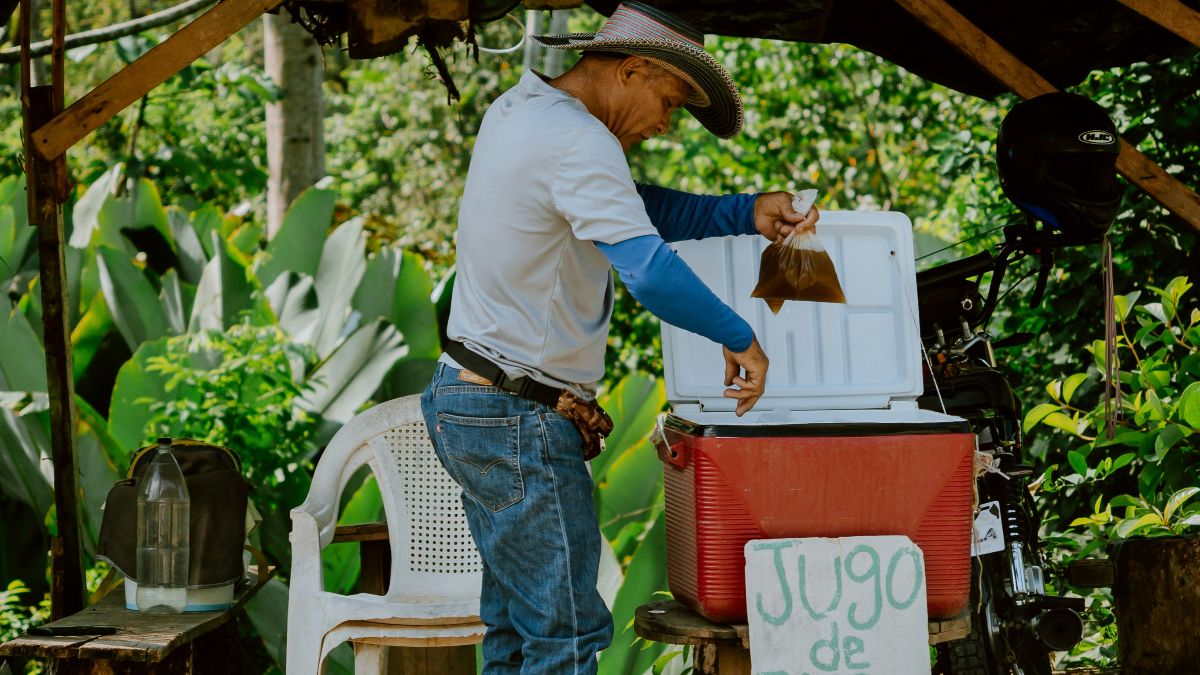Cat care in Costa Rica means understanding how the tropical climate, local environment, and lifestyle affect your pet’s health and comfort. For expats living here or planning the move, this guide covers everything you need to know about keeping your cat safe, healthy, and happy in its new home.
There’s no doubt that at this website, we’re pet lovers and we see pets as family rather than possessions. And we’ve spoken quite a lot before about dogs, specifically. Moving abroad with your dog, what to expect when you bring your dog to Costa Rica, rescuing or adopting dogs and so on. Probably because I’m a dog person myself and dogs have transformed my life since I came to this part of the world. But I’m also a cat person and I’m full aware that plenty of people move abroad with their feline family members, too.
Now, I’ve never had a cat in Costa Rica myself, although I’d love to change that situation someday. But I have had various cats come into and (sadly) out of my life in the past and I definitely have a connection. There was Smudge when I was about five, who we rescued on our street. Outside of goldfish, Smudge was my first real pet. Then along came Lucy and Basil, both from a shelter. Lucy was highly strung and nervous – someone had obviously treated her badly before – but I hope we made her final years a joy. Basil was a friendly vagabond who came and went as he pleased, until he went for good one day and broke our hearts.
Years later, my mom adopted a cat called Ted from my sister. I lived at my mom’s place between a stint in Greece and my move to Costa Rica, and I fell totally in love with Ted, who became my amigo. My first dog in Costa Rica, my soul-dog McGuinn, reminded me of Ted in so many ways that I couldn’t help feeling maybe Ted was in him somehow. You never know, right?
Anyway, this is my long-winded way of introducing a guide for expat cat owners in Costa Rica (or elsewhere in Central America). It’s National Cat Day, after all, and it’s high time we did this!
View this post on Instagram
Cats and Everyday Life in Costa Rica
Cats are part of daily life in Costa Rica. You’ll find them living in homes, shops, and cafes, as companions and pest-controllers alike. Many Costa Ricans have a soft spot for cats, and while dogs tend to be more visible, cats are just as loved. You’ll also see a number of community cats cared for by locals and expats together. Rescue groups and neighborhood feeding efforts are common, showing the strong sense of compassion that exists here.
For expats settling in Costa Rica, it’s important to understand that cats are treated with warmth and respect but may live more freely than in some other countries. That means you might encounter friendly cats wandering around restaurants or hotels, or even visiting your garden. Most are healthy, curious, and well adapted to the tropical lifestyle.
Keeping Cats Healthy in a Tropical Climate
Cats can thrive in Costa Rica, but they need help adjusting to the tropical climate. The heat and humidity can affect their comfort, hydration, and energy levels. Indoors, keep a few shaded resting areas and encourage good airflow through open windows or fans. If you use air conditioning, keep the temperature consistent and avoid sudden changes that can affect breathing.
Always have fresh water available in more than one spot. Water fountains can help encourage drinking, and a little water mixed into wet food adds extra hydration. Avoid leaving food out for too long, especially during the day, as it can spoil quickly and attract ants. Feeding smaller portions more often works better in this environment.
Watch for signs of heat stress such as panting, drooling, or lethargy, and give your cat a cool place to rest. Grooming more than usual can be a normal response to heat, but if you see distress or hair loss, it’s time for a vet check.
Before you move, it might be worth doing a DNA test for cats. These tests determine genetic characteristics, breeds, and possible hereditary health concerns, which can assist you and your new vet in developing a proactive health strategy once you arrive. Something like this could prove useful in the future.
Common Health Risks in Costa Rica
The main concern for cats in Costa Rica is parasites. Fleas, ticks, and worms are active year-round, so prevention is essential. Speak with your vet about monthly treatments suitable for the tropics. Some brands used in North America or Europe may not be available here, but local alternatives work well.
Toxoplasmosis is another issue to be aware of. It’s widespread among cats in this part of the world, so maintaining a clean litter box and keeping rodents out of your home is important. Avoid letting your cat hunt or roam unsupervised if possible.
Routine checkups help detect intestinal parasites and other tropical health problems early. Vets in Costa Rica recommend keeping up with vaccinations for rabies and the core feline diseases like panleukopenia, rhinotracheitis, calicivirus, and leukemia.
Skin conditions such as fungal infections can also appear more often in humid climates. Keep bedding dry and wash it regularly to reduce risk.
Veterinary Care
Costa Rica has excellent veterinary care, especially in urban and expat-friendly areas like Escazú, Atenas, and Guanacaste. Many vets speak English and are familiar with expat clients. Routine visits, sterilization, and vaccinations are affordable compared to North America.
In smaller or more rural towns, access to full-service clinics can be limited, but mobile vets often visit communities on scheduled days. Local Facebook groups are a good source of recommendations.
If you plan to live here long-term, build a relationship with one trusted vet who knows your cat’s history. Preventive care is always easier than emergency care in a new environment.
Indoor vs Outdoor Cats
One of the biggest questions for cat owners in Costa Rica is whether to let their cats go outside. The short answer is that it’s best to keep them indoors or in secure outdoor spaces.
The tropical environment brings real risks for roaming cats. Cars, stray dogs, snakes, and large birds of prey can all pose dangers, and the climate itself can be harsh at times. Outdoor cats are also far more likely to pick up fleas, ticks, worms, or mosquito-borne diseases, which are common year-round here.
There’s also a broader reason to think twice about letting cats roam freely. Costa Rica is famous for its wildlife, and free-roaming cats can be a serious threat to local bird and small mammal populations. Even well-fed domestic cats are natural hunters, and their presence outdoors has real ecological impact. Keeping your cat indoors supports the country’s wider conservation values and helps reduce pressure on native species.
If you want your cat to have fresh air and outdoor stimulation, the best option is a secure space like a screened patio or fenced enclosure. These setups, often called catios, give cats freedom and enrichment without the risks. Always provide shade, clean water, and a safe way back inside when the weather turns hot or wet.
Keeping cats indoors might take a little adjustment, but most adapt quickly and live longer, healthier lives as a result. It’s better for them and better for the environment they live in.
Nutrition and Supplies
Cat food and litter are easy to find in most supermarkets and pet stores throughout Costa Rica. You’ll see both local and imported brands, although the latter can occasionally go out of stock. Stocking up a bit in advance helps.
In hot weather, dry food can be more practical, but a mix of wet and dry provides better hydration and nutrition. Feed indoors when possible to prevent ants or flies. Clean bowls regularly and avoid leaving leftovers out.
Quality litter is widely available, though types can vary. Some owners prefer pellet-style litter, which holds up better in humidity.
Stray and Community Cats
Stray cats exist throughout Costa Rica, though they’re less visible than street dogs. Many towns and communities have informal feeding areas or rescue efforts, often organized by expats and local volunteers.
Animal welfare groups around the country run sterilization campaigns and adoption events that include cats as well as dogs. If you want to get involved, fostering, donating, or helping with spay and neuter drives are all appreciated.
Responsible ownership helps keep populations healthy. Spaying and neutering your cat, keeping vaccinations up to date, and preventing outdoor breeding all make a difference.
View this post on Instagram
Creating a Safe and Comfortable Home
Indoor life in the tropics doesn’t have to be boring for cats. A few simple adjustments can make a big difference. Provide scratching posts, climbing spots, and windows with safe screens so your cat can watch the world outside. Use fans to circulate air, and keep floors cool with tiles or mats.
Check your houseplants before bringing them inside, as some tropical plants can be toxic to cats. Keep food sealed, wipe up spills, and clean litter boxes often to avoid attracting ants.
Grooming helps cats handle heat better, especially long-haired ones. Brushing removes loose fur and keeps their skin healthy in the humidity.
Final Thoughts
Living in Costa Rica with a cat is easy and rewarding once you understand the environment. With steady care and a bit of adaptation, cats can live long, healthy, and happy lives here.
For expats, responsible cat ownership also means supporting local animal welfare efforts and respecting the country’s unique environment. Living here with a pet is a privilege that comes with responsibility, and a few simple habits will help your cat stay comfortable and safe in its tropical home.




